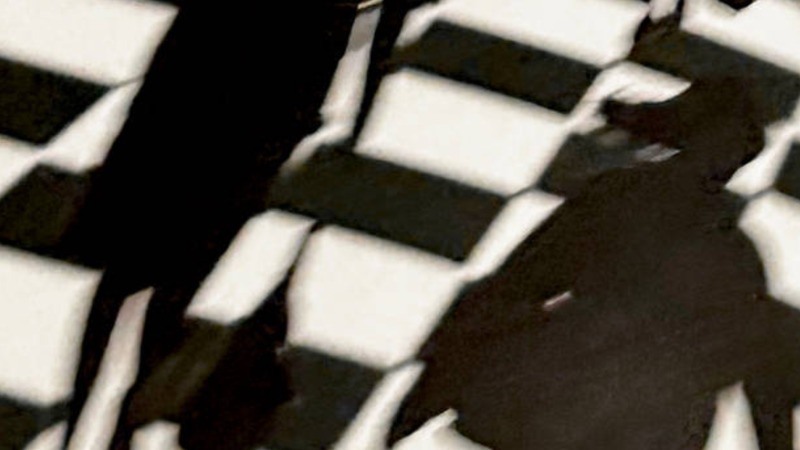Smerz Revel in What’s Chosen and What’s Claimed on Big city life
The Norwegian duo’s second album builds an art-pop opera set to the pace of an urban existence.

Over the past few months, I’ve started to worry about whether my city is rotting my memory away. The moments where it’s just me and New York—breathing as one with only its ambient hum holding me upright—I remember those in stark, clear detail. Yet, when someone else enters our orbit, where I’m speaking faster than my brain can process and we move from venue to train to apartment and back, and my romance with my hometown is split down the center and shared with however many bodies you can pack into one bar, I can only remember the night in bleary still frames. Even when no substances are involved, my recollections come in quick, fluorescent pulses that I struggle to retrieve later.
There are all of these platitudes that people who move here spout about how humbling large city living can be, how a location’s size and scope can overwhelm, but that’s never rang true to me. Even on my worst days here, it’s more about locking into the rhythm of its movement—matching your own heartbeat to the rattle of public transit and kids jumping fences and a shriek of laughter from the top of a walk-up—like it stalks the street with its hand in yours, but never quite moves to loom over you. In the light of day, alone, I’m just as locked into it and protected by it as I am on those half-forgotten nights out. It’s just a different pulse to which you have to adapt.
Big city life, Catharina Stoltenberg and Henriette Motzfeldt’s second LP as musical duo Smerz, is an album which attempts to capture this adaptation, building an art-pop opera set to the pace of an urban existence. Based on experiences both real and imagined in New York and their hometown of Oslo, this album hardly marks the first time the pair have honed in on a concept and built an eclectic musical world around it: in 2024, Smerz wrote and produced both a choral album for Norwegian vocal ensemble GAEA, Tidligere den dagen, and an EP chronicling the career of fictional pop star, Allina. Though they’ve returned to a more tangible, grounded world to place their latest full-length work in, the push and pull of something dreamlike and the filthy sidewalk beneath your boots is what drives the record, both sonically and thematically. Where weeping romances are set to moody, minimal ballads and the fuzzy subway ride home is set to a thumping beat under dizzying waves of synths, all chaos—both ecstatic and droll—serves to soundtrack those lapses of memory and the specificity in between.
Fitting with one of the record’s muse cities (and the city which I am most intimately familiar with), Stoltenberg and Motzfeldt strike gold when they’re able to effectively court the strange. The trip-hop-inspired grind of the opening title track serves as a lament over the monotony of daily life outside the big city Smerz yearn for, backed by synth notes that prick at the back of your neck needling over atonal keyboard runs, aiming to destabilize. Second track “But I do” also relies on an off-putting, industrial hollowness, as grinding fuzz guitar and percussion depict our protagonist out of lockstep with her environment. “You need to make up your mind,” the omniscient narrator played by the city asks us, telling us to either step in time or try the suburbs again: “Are you a girl or a lady?”
The next “movement” in the opera is bookended by singles “Roll the dice” and “Feisty,” both of which rely on a deadpan pop-rap delivery to spout party girl clichés over programmed string hits—seemingly evoking a certain wave of ironic, postmodern dance music that certain New York nightcrawlers have been besotted with over the past few years. What makes Smerz’s take on it all the more effective is how effortless it sounds—operating within the logic of bleary night moves, where you’d want to describe the action using as few syllables as possible. It’s not trying to be clever, but intentionally monologuing in the dumbest language possible, hardly focused on the meaning of the memory while it’s being made, as you would be in real life. Then, by the end of “Feisty”’s slant-rhyming verses, you’re walloped with the realization of the sober walk home which will follow: “I don’t love you no more, I don’t know / You either have it or you don’t / Either way, I feel confused and alone.”
-

-

-

-

-

-

-

-

-

-

-

-

-

-

-

-

-

-

-

-

-

-

-

-

-

-

-

-

-

-

-

-

-

-

-

-

-

-

-

-








































